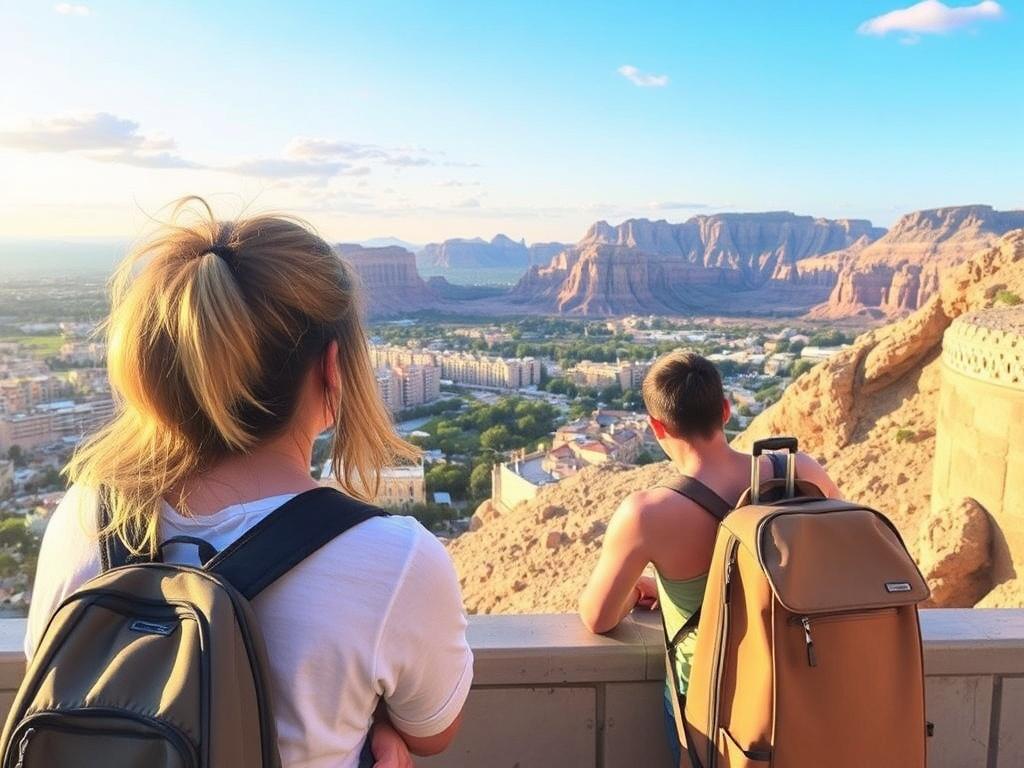
How to Travel with Anxiety or Stress: Your Ultimate Guide for a Calm Journey
Traveling can be one of life’s most exciting experiences—new places to explore, different cultures to discover, and memories waiting to be made. But for many people, the mere thought of traveling triggers anxiety or stress. Whether it’s the fear of flying, navigating crowds, or managing time and logistics, traveling with anxiety or stress can feel overwhelming. The good news? You don’t have to let these feelings keep you from exploring the world. In this article, we’ll take you through practical, easy-to-follow steps and strategies to help you manage your anxiety or stress so you can enjoy your travels fully and calmly.
Understanding Anxiety and Stress When Traveling
Before diving into tips and techniques on how to travel with anxiety or stress, it’s important to understand what causes these feelings during a trip. Anxiety related to travel often stems from uncertainty and a lack of control. New environments, tight schedules, crowded airports, and fear of the unknown can all contribute to a heightened sense of worry. Stress, on the other hand, may come from the pressure to organize everything perfectly or fears about things going wrong—like missed flights, lost luggage, or health issues in a foreign land.
Travel anxiety can manifest in many ways—it might be a constant feeling of unease, physical symptoms like sweating, shaking, or a racing heart, or even panic attacks. Stress might make you feel overwhelmed and exhausted, affecting your overall enjoyment of the journey. Recognizing these feelings early is the first step toward managing them effectively.
Preparing Yourself: The Foundation of Stress-Free Travel
One of the best ways to reduce anxiety or stress while traveling is to prepare thoroughly. Preparation builds confidence and reduces surprises, which in turn calms the mind. Here are some key preparation steps you can take:
1. Plan Your Trip Carefully but Flexibly
Planning helps reduce the “unknown” factor that triggers anxiety. However, doing too much or being overly rigid with your itinerary can increase stress. Strike a balance by outlining your main destinations, flight times, accommodation details, and transportation, while leaving room for spontaneity.
2. Research Your Destination Thoroughly
Familiarity breeds comfort. Learning about your destination’s culture, language basics, local customs, and emergency services will give you peace of mind. You can use apps and travel blogs to get insights and practical tips from others who have traveled there.
3. Make a Travel Checklist
A simple, detailed checklist helps ensure you don’t forget important items, reducing last-minute panic. You can organize it by categories such as documents, clothing, medications, gadgets, and toiletries.
| Category | Essential Items |
|---|---|
| Documents | Passport/ID, Travel visas, Boarding passes, Travel insurance, Emergency contacts |
| Clothing | Comfortable clothes, Weather-appropriate gear, Extra socks, Sleepwear |
| Medications | Prescriptions, Pain relievers, Anti-anxiety meds, Motion sickness tablets |
| Gadgets | Smartphone, Chargers, Power bank, Headphones |
| Toiletries | Toothbrush, Toothpaste, Travel-sized shampoo/soap, Hand sanitizer |
4. Pack Light but Smart
Overpacking can increase physical and mental stress. Choose versatile clothes and pack essentials only, while keeping medications or comfort items easily accessible. A lightweight pack can make a big difference, especially if you have to move around frequently.
During the Journey: Managing Anxiety or Stress Step-by-Step
Once you’re on the road, it’s natural to feel some nerves or tension. Here are ways you can stay calm throughout your travel experience:
1. Arrive Early and Give Yourself Time
Missed flights or rushing through airport security can spike anxiety. Arrive early and allow extra time for unexpected delays. Use this time to relax, breathe, and prepare yourself mentally for the next leg of your trip.
2. Use Relaxation Techniques
Simple relaxation exercises can significantly reduce anxiety or stress. Practice deep breathing, progressive muscle relaxation, or mindfulness meditation. These tools can be done anywhere, whether you’re sitting in a plane seat or waiting in line.
3. Bring Comfort Items with You
Items like a favorite book, music playlist, neck pillow, or even a small scented candle (where allowed) can provide comfort and a sense of normalcy. Having something familiar nearby is reassuring.
4. Stay Hydrated and Eat Regularly
It’s easy to forget to drink water or eat balanced meals when traveling, but dehydration and hunger increase stress and irritability. Pack healthy snacks like nuts, fruits, or granola bars and drink water frequently.
5. Limit Caffeine and Alcohol
Both caffeine and alcohol can exacerbate anxiety. Stick to water, herbal teas, or other non-stimulating beverages especially during the journey.
6. Communicate Your Needs
Don’t hesitate to let airline staff, hotel employees, or travel companions know if you’re feeling anxious or stressed. They are often trained to help and can provide support or accommodations.
7. Stay Connected with Loved Ones
Check in with friends or family regularly. Hearing a familiar voice or message can provide comfort and reduce feelings of isolation.
Strategies for Specific Travel Scenarios
Travel anxiety or stress does not affect everyone the same way, and different parts of the journey may bring different triggers. Here are tailored tips for common travel scenarios:
Flying with Anxiety or Stress
Air travel is one of the biggest anxiety triggers. Fear of flying can cause intense stress, but certain techniques help reduce this:
- Learn About the Flying Process: Understanding what happens during takeoff, turbulence, and landing can demystify the experience.
- Use Distraction: Bring engaging activities such as movies, podcasts, or puzzles to take your mind off the flight.
- Take Medications if Necessary: Consult your doctor about anti-anxiety or motion sickness meds if flying is a major trigger.
- Practice Grounding Techniques: Focus on your breathing and your five senses to stay present and calm.
Navigating Crowded Places
Crowded airports, bus stations, or tourist spots can be overwhelming. To cope:
- Plan visits during off-peak hours.
- Identify quiet areas where you can rest and decompress.
- Bring noise-canceling headphones or earplugs.
- Stay close to your travel partners for security.
Handling Jet Lag and Disrupted Sleep
Sleep disturbance can worsen anxiety or stress. Tips include:
- Adjust to the new timezone gradually by changing your sleep schedule before traveling.
- Use eye masks and earplugs to create a restful environment.
- Avoid screens at least an hour before bedtime.
- Use calming scents like lavender to signal relaxation.
Mindset and Self-Care: Key to Long-Term Success
Your mindset plays a crucial role in managing anxiety or stress while traveling. Here are habits and attitudes to cultivate:
1. Accept Anxiety as Normal
It’s okay to feel anxious or stressed. Acceptance reduces the fear of these feelings themselves, which can break the cycle of worry.
2. Set Realistic Expectations
Travel rarely goes exactly as planned. Embracing flexibility and a sense of humor can turn stressful moments into memorable stories.
3. Practice Self-Compassion
Be gentle with yourself if anxiety spikes or things don’t go smoothly. Give yourself credit for taking on challenges and trying your best.
4. Use Travel Journals or Apps
Recording your journey or emotions can help process feelings and track what works best for you. Certain apps provide guided practices for anxiety management on the go.
Helpful Tools and Resources for Traveling with Anxiety or Stress
Technology and support networks offer great assistance to travelers managing anxiety or stress:
| Type | Example | How It Helps |
|---|---|---|
| Mobile Apps | Calm, Headspace, Breathe2Relax | Provide guided meditation, breathing exercises, and relaxation techniques |
| Wearables | Smartwatches, Biofeedback devices | Track heart rate and stress indicators, reminding you to take breaks |
| Support Groups | Online forums, Travel anxiety Facebook groups | Connect with others for advice, encouragement, and shared experiences |
| Professional Help | Therapists, Travel coaches | Offer personalized strategies and emotional support |
Tips for Traveling with Kids or Family When You Have Anxiety
Traveling with family adds layers of responsibility that can increase stress. Here’s how to ease the process:
- Plan kid-friendly activities and downtime to reduce meltdowns.
- Delegate tasks with family members to avoid overload.
- Keep comfort items handy for yourself and children.
- Use child-friendly apps or games to distract restless kids.
- Practice patience and maintain open communication about feelings.
When to Seek Professional Help Before Traveling
Sometimes anxiety or stress about travel may be part of a larger mental health condition requiring professional support. Consider reaching out if:
- Travel anxiety significantly affects your daily life or prevents you from making plans.
- You experience panic attacks, intense phobias, or depression related to travel.
- You need guidance on medications or therapy before your trip.
- Your anxiety worsens despite using self-help strategies.
Mental health professionals can tailor coping strategies to your needs and help you build confidence for future travels.
Conclusion
Traveling with anxiety or stress can be daunting, but it doesn’t have to hold you back from experiencing the joys of exploring new places. By understanding your triggers, preparing carefully, using practical relaxation techniques, and maintaining a flexible and compassionate mindset, you can safely navigate your journey with greater calm and confidence. Remember, you’re not alone—many travelers face similar challenges, and resources and support are readily available. Whether it’s planning ahead, utilizing technology, or seeking professional help, there are many ways to make travel enjoyable and anxiety-free. Your adventure awaits, and with the right tools and approach, it can be one of your most rewarding experiences yet.




